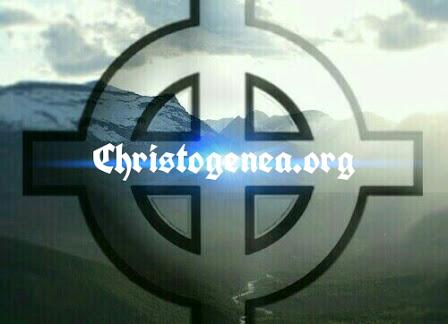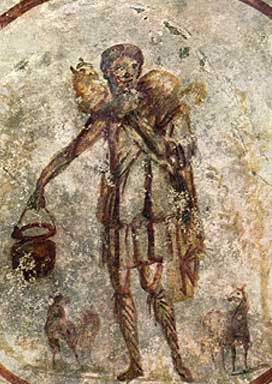Christianity in the Old Testament, Part 1, an Introduction: What is a Catholic?
 Christianity in the Old Testament, Part 1, an Introduction: What is a Catholic?
Christianity in the Old Testament, Part 1, an Introduction: What is a Catholic?
Here we are going to discuss Christianity in the Old Testament, and this evening’s program is going to serve as an introduction to the subject. As we commence with subsequent parts of the series, we shall present a critical review of Bertrand Comparet’s sermon, Christianity in the Old Testament. Because of its length, which is comparatively extraordinary for Comparet, the review will take at least a couple of presentations to complete, depending on how many of our own comments we choose to interject. But a lengthy introduction is necessary, because even before we begin, there are a couple of related subjects that I feel there is urgent need to discuss, and as I discuss these things, I am going to prove one bold assertion: that Identity Christians are the original and true catholics, even though what we call Christian Identity as we know is only about a hundred and eighty years old, counting it from the time that it began to develop with British exploration and archaeological discovery within the British empire. The discoveries which the British and others made in that era led to Christian Identity.
So many people are convinced for so many years that the Old Testament and the New Testament are different books, representing different covenants, and with different peoples. Nothing could be further from the truth, and as we have said in the past, this belief is absolutely contrary to the words of the books themselves. We shall soon see that the earliest Christian writers, Irenaeus, Clement of Alexandria, Tertullian and Lactantius, all agree with us in this regard.

 Christianity in the Old Testament, Part 2, a presentation of Bertrand Comparet's Sermon, with our own Commentary
Christianity in the Old Testament, Part 2, a presentation of Bertrand Comparet's Sermon, with our own Commentary
 Christianity in the Old Testament, Part 3, a continuing presentation of Bertrand Comparet's Sermon, with our own Commentary
Christianity in the Old Testament, Part 3, a continuing presentation of Bertrand Comparet's Sermon, with our own Commentary






 Please click here for our mailing list sign-up page.
Please click here for our mailing list sign-up page.







